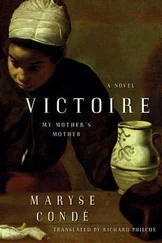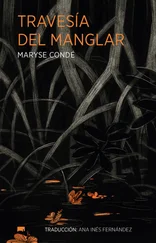Elissa was not the only one to be worried. Thomas de Brabant was not insensitive to his wife’s change of mood. So he set about arranging a grand tour for her in the New Year. As it also marked the fifth anniversary of their marriage, he was convinced it would do her a world of good. The plan was to travel through the countries of Latin America she had dreamed of visiting — the former empire of the Incas, Bolivia, Ecuador, and above all, Peru. She had become passionately interested in this far-off land while reading Flora Tristan. In her eyes, a few lines in Peregrinations of a Pariah marked the first link between sexism and racism, whereas the whole book was a powerful condemnation of slavery. Thomas had left nothing to chance. They would take the SS Veracruz from La Pointe to Caracas in Venezuela, then continue through the Andes by slowly and regally descending the rivers.
At the end of August, however, Celanire seemed to have regained her enthusiasm for life. She dashed from the governor’s residence to the bishop’s palace, and also paid frequent visits to the Sainte-Hyacinthe hospital, where she was allowed to consult the records. What could she be looking for day after day? One morning, in a frenzy, she begged Elissa to accompany her to Ravine-Vilaine. Ravine-Vilaine was a small village on the northern edge of the island that was fast becoming a place of pilgrimage. It would certainly have sunk into anonymity if it hadn’t produced a saint who was causing a great deal of excitement all over the island. Not only had this Sister Tonine received the marks of stigmata, reliving the crucifixion of Our Lord Jesus Christ, but even after her death, she suffered little children to come unto her. By that was meant she gave a belly to sterile women who had dragged themselves through life on their knees to have kids. Some even went so far as to request she be canonized at Saint Peter’s in Rome. She would be the first saint from the Caribbean, which, to be honest, was not exactly a region of saints.
Ravine-Vilaine was a very special place. Neither sugarcane nor coffee had ever been grown there. Not a sugar or coffee plantation house had ever been built there. No bell or siren had ever sounded noon for a population of slaves. To survive, the inhabitants felled trees from the forest, sawed them up, and made charcoal, which they sold once a month in the towns along the coast. Elissa expressed surprise. Why were they going to such a hole? Was Celanire, who had so mocked motherhood, now going to pray for a belly? Celanire launched into one of her usual explanations, which explained nothing at all. Elissa knew, like Thomas de Brabant, that Celanire never told the whole truth. She had come to accept her friend as a teller of tales who changed the contents of the story as she fancied, like a novelist writing her autobiography, adding, deleting, lengthening, eliminating such and such a chapter, and clarifying such and such a fact as the mood took her. Africa? Going by what she said, sometimes it was a barbaric land where the women languished from sexual discrimination, sometimes a victimized continent that the European predators had hacked to pieces. Thomas de Brabant? Sometimes she confessed that the orphan she was had married him out of necessity, tired of trudging along life’s miserable path alone. Sometimes she claimed she adored him for his generosity and brilliant mind. He comforted her when her hopes had been dashed, for she had loved two men, two unsavory individuals who had scorned her. The first, whom she had revered as her master and creator, had denied her the affections of a father as well as the attentions of a lover. The second had held her heart and body in contempt.
Elissa, who let Celanire get away with anything, finally agreed to accompany her. They set off then on a long adventure. At Anse Médard they had to leave their carriage and hire the services of two guides in order to cross the pass of the Mulatière by mule, before descending deep into the valley and making their way through thick forest. The difficult journey had little effect on Celanire. On the contrary, she chattered away like a magpie and never stopped repeating that she had finally arrived at the end of the quest she had begun two years earlier. Quest? What quest? Elissa ventured. Celanire reminded her in no uncertain terms that she did not know who her biological parents were and that she was looking for them. Elissa, who had hated her own parents, especially her mother, and could not find peace with herself until she had put them far behind her, was ashamed of herself. Nobody can imagine what it’s like not to know your family tree. Apparently Celanire did not hold Elissa’s lack of understanding against her. She began to enthuse over the surrounding landscape: the intricate tangle of vegetation, the enormity of the trees, the size of the creepers, the vitality of the epiphytes, and the spears of sunlight that, in places, managed to pierce the forest canopy. When they arrived at Ravine-Vilaine, it was dark and raining — not those violent downpours common to the coastal regions, but a fine, misty rain that blurred the contours of the night.
Elissa was deep down a town dweller. She only put up with the island of Fajoux because of the sun’s burst of laughter over the sea. She immediately hated this darkness, this dankness, this jail of foliage. However hard you craned your head, you could never see the sky, barricaded by devil trees, candlewood trees, and immortelles, in turn gnawed by the leaf of life creeper and the wild pineapple. Celanire had reserved a room with a woman she claimed to have known in Basse-Terre, a certain widow Poirier, whose husband had been lost at sea two seasons earlier, and who had done the cleaning at the bishop’s palace. She was a handsome woman with teeth of pearl, and her verve was quite out of place in such surroundings. She told Celanire that some of the village women were waiting for her at the church. So without even opening their wicker baskets, Celanire dragged Elissa off down the main street — if we can attribute such a name to a path of beaten earth, a sort of forest track, which after winding a few yards among the guinea grass disappeared farther up. The huts along the way were all identical, a jumble of corrugated iron and wooden planks that looked as though they had been thrown together haphazardly. A group of poorly dressed women, as black as the charcoal they were selling, passionately kissed Celanire’s hands and dragged her inside the church. Elissa remained outside, waiting for them. Religion was a constant bone of contention between the two friends. Elissa, who had read all the philosophers, especially Voltaire, professed to be a free thinker, whereas Celanire firmly believed not exactly in the Good Lord and his saints but rather in Satan, evil, and the invisible spirits. She even went so far as to claim they were constantly present in her dreams. Celanire and the women finally emerged. Then one of them took the lead and led the group along the path to the little cemetery under a grove of casuarinas. No mausoleums or family vaults here. A series of humble graves at ground level, mounds of earth edged with conch shells and marked here and there with a cross.
One of them bore these words in crude letters:
Here lies a saint
Sister Tonine
?–1905
What the Women Told Celanire
Nobody could say why God had chosen Sister Tonine as a recipient of His greater glory; sometimes He reveals himself in mysterious ways in the most humble, the most destitute of His creatures. Illiterate. Wretched. Licked by life.
Nobody remembers exactly the year she came to live in Ravine-Vilaine. She arrived unannounced and slipped into a wattle hut whose owner had died the year before and left vacant. She had no means of her own to build a home. She had roamed around for years. She had been out in the rain during the rainy season and exposed to the sun during the dry season. It was the birds who first signaled her presence. They flocked out of the woods, obscuring the sky with their feathers — wood pigeons, turtledoves, hummingbirds, sugar tits, and ortolans. Seagulls and cormorants also flew in from the ocean, carrying on their wings the smell of the sea. All of them settled on the roof of her hut like heralds bearing good tidings. Then the children came flocking in, the tiny tots crawling on all fours. Then the women. Finally, slower than the rest, the men — especially unsociable and suspicious because of the climate and hard labor they are sentenced to if they don’t want to starve to death. And yet they too ended up adopting Sister Tonine. They squabbled over who would bring her dasheen or yams from their vegetable patch, an agouti or a wild pig they had trapped. The reason for this infatuation was that you couldn’t help loving the dear little woman. In her shapeless blue dress she was no taller or bigger than a ten-year-old. Black? Indian? Chinese? Rather a mixture of all three. Looking somewhat cracked, like those who have suffered no reprieve from life. In fact Sister Tonine sometimes sighed that the story of her life would break the heart of rocks, but she wouldn’t say any more.
Читать дальше












